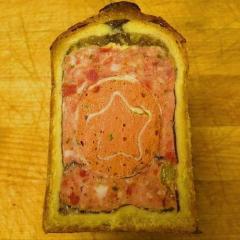-
Welcome to the eG Forums, a service of the eGullet Society for Culinary Arts & Letters. The Society is a 501(c)3 not-for-profit organization dedicated to the advancement of the culinary arts. These advertising-free forums are provided free of charge through donations from Society members. Anyone may read the forums, but to post you must create a free account.
What Defines a "Food Expert"?
-
Similar Content
-
- 21 replies
- 1,246 views
-
- 1,055 replies
- 161,652 views
-
- 2,292 replies
- 279,071 views
-
- 5 replies
- 152 views
-
- 826 replies
- 80,818 views
-
-
Recently Browsing 0 members
- No registered users viewing this page.





Recommended Posts